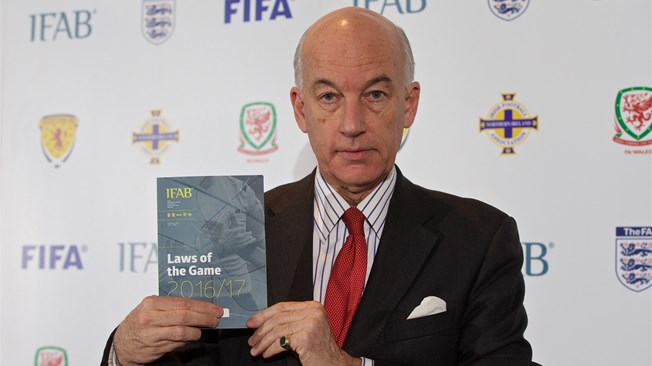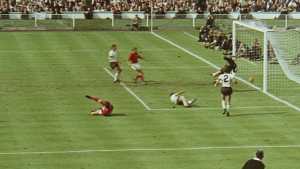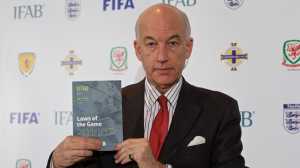

This can be interpreted, as it was by its creator, in scientific terms, but it can also be applied to sport, and in particular, to the many law-changes and rules which have been implemented over the years. For example, what would the great sport of association football be today had the crossbar not been introduced in 1882?
Well, for a start, England wouldn’t have won the World Cup in 1966.
Conversely, the Golden Goal, and it’s oft-forgotten cousin, the Silver Goal, seemed like good ideas at the time, but have since been consigned to history, along with, presumably, the never-to-be-seen Bronze Goal.
Then there’s the hopefully resolved shambles surrounding penalties in hurling, where, for a brief period of time, the advantage lay not with the attacker but the keeper and his merry band of defenders.
Rule-changes in sport are inevitable; as humanity becomes more sophisticated and technological advances are made, so we look to improve the things we love best. Video referees, hawk-eye and retrospective punishments have helped to make things fairer, eliminating human error and that sense of rueful injustice which comes from the feeling you’ve been conned by a disingenuous man in black.

Take the proposals put forward by the International Football Association Board (IFAB) this week. The board, which is comprised of members of the FA, FIFA and the other British federations, gets together twice a year to discuss the sport of football and figure out ways to ruin it.
This year they have excelled themselves; their brightest, best and most ludicrous idea to shorten the length of a game to sixty minutes in order to somehow, make it longer. Yep, you read that right. These geniuses, these doyens of the game, believe that by stopping the clock every time the balls goes out of play and making each half just thirty minutes long, football will improve as a sport.
Their argument is that this will reduce time-wasting and has nothing to do with the fact that a stopped clock means the game is essentially on hold, allowing television companies to squeeze in a couple of extra ads while we wait for our stricken number nine to recover from his stubbed toe. Far from shortening the game, this would lead to bum-numbing two, three or maybe even four-hour matches, on a par with the best the NFL has to offer.
It’s hard not to be cynical about all this, especially when you consider that the two most important participants in the game, players and supporters, are never consulted when changes are mooted. Players are just expected to turn up on the day, exhibit their skills, and disappear again. Fans, that most disposable of commodities, are afforded even less respect, the assumption being that the money we contribute can easily be sourced elsewhere.
If you were in any doubt as to the stupidity of these people, the brain-dead notions which pass for ideas in the IFAB, check out some of their other suggestions.

They also want to mix up penalty shoot-outs so they resemble tie-breaks in tennis, with one team taking two penalties, and then the other taking one, or something like that, and allow players (most likely Ronaldo) to pass to themselves on corners and free kicks.
Reports that they want to make next year’s Champions League final ‘headers and volleys only’ have yet to be confirmed.









